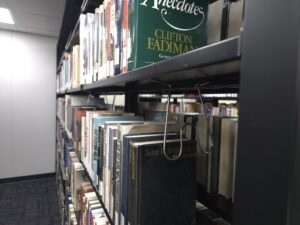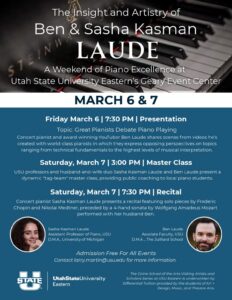Athletic department passes NJCAA audit
During the first week of February, USU-CEU’s Athletic Department was audited by the National Junior College Athletic Association. In the 22 years that David Paur has been athletic director, USU-CEU has never been audited.
“I figured it was just about time,” said Paur, AD and head women’s’ basketball coach.
USU-CEU’s athletic department was given 48 hours to submit: eligibility forms, transcripts, GEDs, schedules, letter of intents, and signed documents stating that foreign players have not been paid to play basketball anywhere in the world.
This archived article was written by: Jasmine Tidwell
During the first week of February, USU-CEU’s Athletic Department was audited by the National Junior College Athletic Association. In the 22 years that David Paur has been athletic director, USU-CEU has never been audited.
“I figured it was just about time,” said Paur, AD and head women’s’ basketball coach.
USU-CEU’s athletic department was given 48 hours to submit: eligibility forms, transcripts, GEDs, schedules, letter of intents, and signed documents stating that foreign players have not been paid to play basketball anywhere in the world.
10 percent of the conference is audited at random each year. If a school is in violation of the NJCAA rules, they can be audited. All illegal actions by a school can make them subject to an audit.
“Most of the audits are at random,” he said, “except College of Southern Idaho has been audited three times in the past couple of years for school athletic violations.”
If USU-CEU did not submit all the required information in the required time, they would be banned from post season travel. If USU-CEU was not able to provide the information to the NJCAA, they would have to forfeit the season in all sports.
USU-CEU was able to provide required information and were cleared in the audit. “I don’t think it will happen again for a while unless a school in our conference says that we are breaking NJCAA rules,” stated Paur.
Last year because of a violation, Northern Idaho College was forced to forfeit two years of their men’s basketball games. The NJCAA felt that one of their foreign players was a professional and therefore ineligible to play.
Since NIC forfeited two years of their games, USU-CEU became scenic west athletic champions and won the SWAC tournament. The men’s basketball team went on to take third in the nation.




